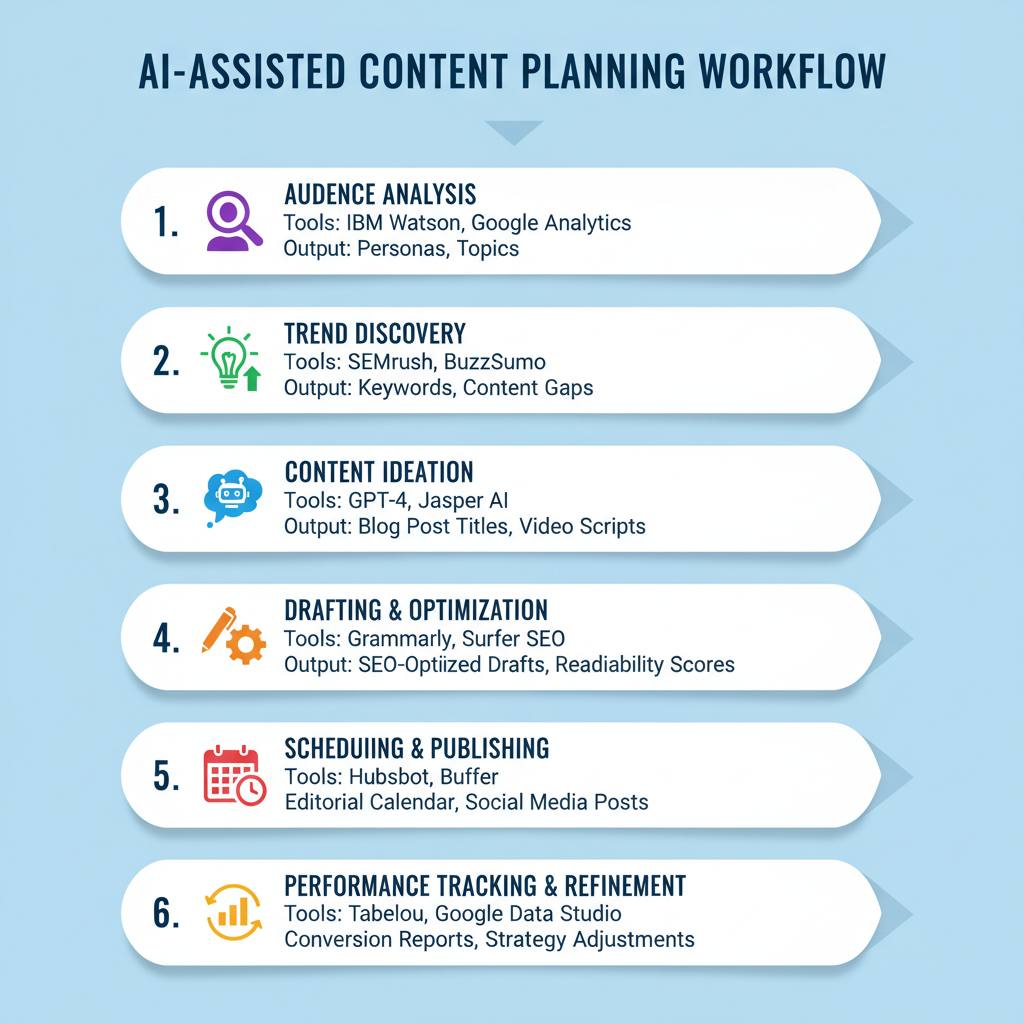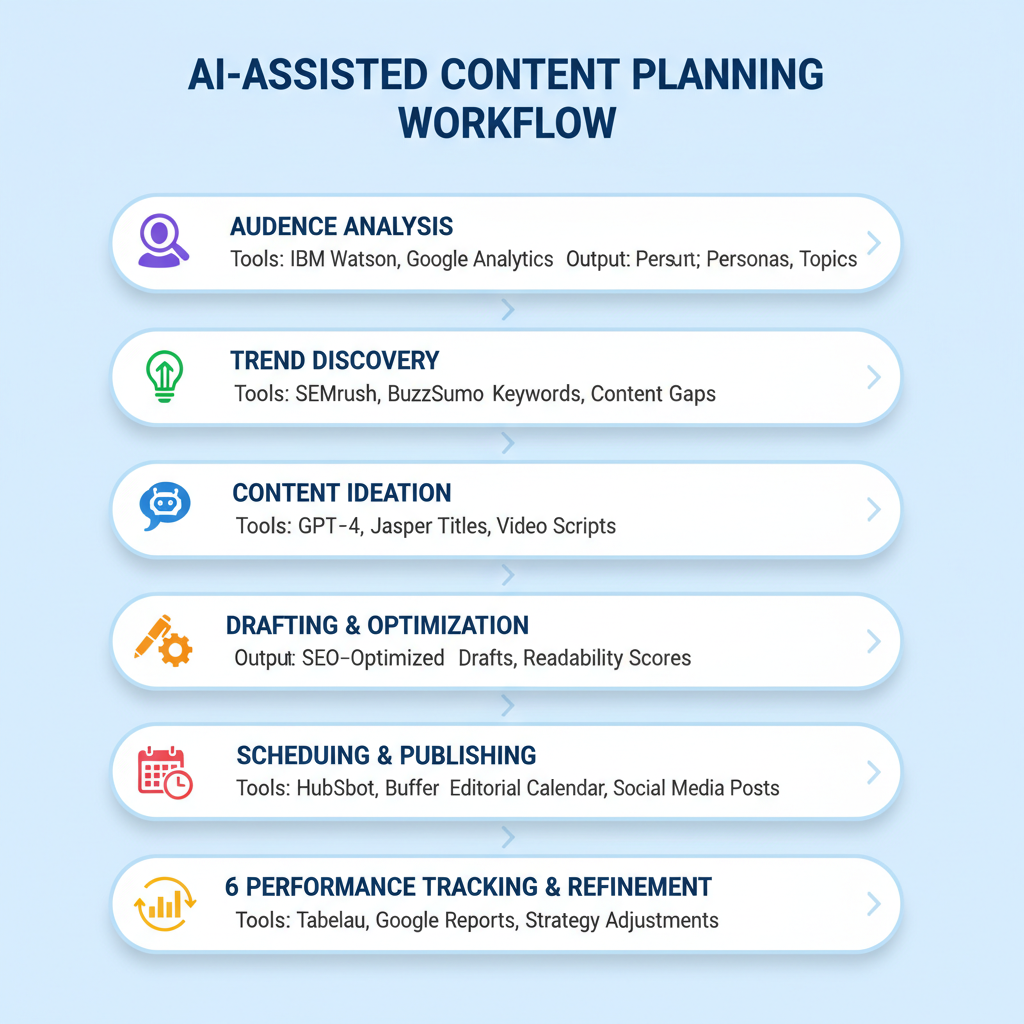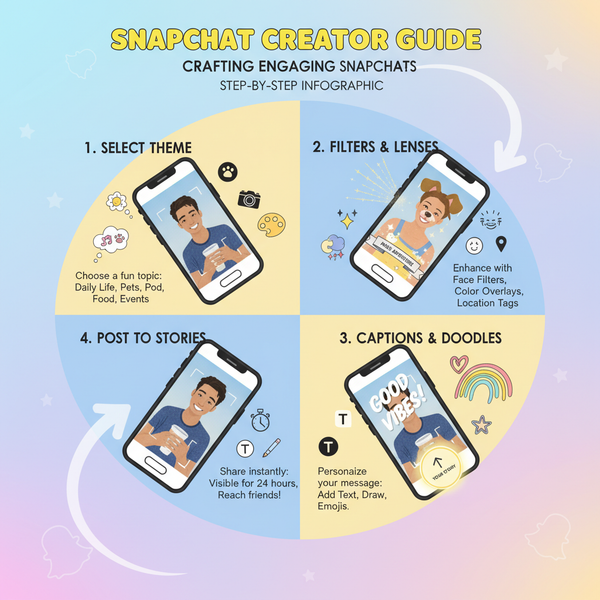AI Tool Strategies for Effective Content Planning
Discover how AI tools enhance content planning with data-driven audience insights, keyword research, gap analysis, and optimized editorial calendars.

AI Tool Strategies for Effective Content Planning
Effective content planning is the backbone of successful digital marketing, and AI tool strategic content planning is transforming the way brands create, optimize, and distribute content. By leveraging artificial intelligence, marketers can uncover deep insights, streamline workflows, and forecast trends, ensuring every piece of content supports long-term business goals.
AI tools can collect, analyze, and synthesize massive datasets in minutes—far faster than traditional methods—empowering brands to take data-driven actions rather than relying on guesswork.

---
Defining Strategic Content Planning and Why AI Matters
Strategic content planning maps out topics, formats, publishing schedules, and promotion strategies to align with objectives such as boosting brand awareness, generating leads, or nurturing customer relationships. Historically, this process relied heavily on manual research, creativity, and iterative adjustments.
AI enhances strategic content planning by:
- Automating repetitive tasks (e.g., keyword research, data analysis).
- Predicting market trends with advanced analytics.
- Personalizing content at scale through smart audience segmentation.
- Identifying optimization opportunities rapidly.
Integrating AI not only accelerates planning but also improves the accuracy and relevance of your content strategies.
---
Identifying Your Target Audience and Buyer Personas Using AI Analytics
Understanding your audience is the foundation of any content strategy. AI-powered analytics platforms like Google Analytics with AI insights, HubSpot, and Crayon mine data from social media, website traffic, and CRM systems to segment audiences into actionable groups.
AI Capabilities in Audience Analysis
- Demographic profiling: Detect age ranges, locations, and preferred languages.
- Psychographic insights: Map values, attitudes, and lifestyle indicators.
- Behavioral tracking: Monitor click patterns, page dwell time, and content engagement rates.
You can also generate detailed buyer personas using AI prompts:
Persona Generator Prompt Example:
"Create three buyer personas based on this dataset: demographics, purchasing history, engagement rates."---
Using AI Keyword Research Tools to Find High-ROI Content Opportunities
AI-driven keyword research delivers competitive advantages by uncovering search terms with untapped potential. Tools like Semrush’s Keyword Magic Tool, Ahrefs with AI enhancements, and Clearscope evaluate search volume, competition level, and user intent more efficiently than manual methods.
| Metric | Definition | AI Advantage |
|---|---|---|
| Search Volume | Monthly frequency a keyword is searched | Predicts seasonal fluctuations |
| Keyword Difficulty | Competitiveness of ranking | Instant scoring with ML models |
| Search Intent | Underlying purpose of the query | Context analysis to match content type |
By targeting long-tail keywords with lower competition, you can create high-ROI content that ranks quickly and connects with niche audiences.
---
Applying AI-Powered Content Gap Analysis to Outsmart Competitors
Content gap analysis reveals where your competitors are outperforming you. AI tools such as MarketMuse or Frase can rapidly scan thousands of competitor pages to identify:
- Keywords they rank for that you don't target.
- Topics they've covered in more depth.
- Formats they use more effectively (infographics, videos, interactive content).
Strategic targeting of these gaps helps you build authority and capture additional search traffic.

---
Leveraging AI for Editorial Calendar Creation and Optimization
An organized editorial calendar is essential for consistent publishing. AI-enhanced tools like CoSchedule and Trello AI Extensions enable you to:
- Optimize posting times for audience engagement.
- Select content types based on historical interaction data.
- Automate task assignments based on workload analysis.
Tip: Incorporating AI recommendations into your editorial schedule ensures you post when your audience is most active for maximum reach.
---
Integrating AI-Driven SEO Optimization into Content Briefs
Content briefs provide clarity and direction for your team. AI-powered SEO tools improve briefs by:
- Suggesting keyword placement and density.
- Offering real-time readability adjustments.
- Highlighting semantically related terms for enhanced relevance.
Example AI Brief Output:
Primary Keyword: "AI tool strategic content planning"
Secondary Keywords: "AI content strategy", "AI marketing tools"
Recommended Word Count: 1,200
Suggested Headings: 6 main sections
Internal Link Suggestions: 5 relevant blog posts---
Utilizing AI for Trend Prediction and Seasonal Content Scheduling
Predictive analytics give marketers the edge in anticipating trends. AI models trained on historical and social data can:
- Identify seasonal content spikes well in advance.
- Prepare campaigns for emerging topics before competitors.
- Adjust publishing cadence to suit upcoming events.
By proactively producing trend-driven content, you increase relevance and engagement.
---
Employing AI-Assisted Content Performance Tracking and Reporting
Monitoring performance in real-time is critical for agile strategy adjustments. AI-powered dashboards evaluate:
- Engagement metrics across channels.
- Bounce and conversion rates.
- Changes in SERP positions.
| Reporting Metric | Manual Limitation | AI Solution |
|---|---|---|
| Click-through rates | Time-intensive manual compilation | Automated real-time updates |
| Content ROI | Challenging to calculate | Aggregated cost-performance analysis |
| Audience Engagement | Disparate platform metrics | Unified cross-platform dashboard |
AI translates raw data into actionable tactics, enabling swift refinement of campaigns.
---
Best Practices for Human + AI Collaboration in Strategic Planning
For optimal results, balance AI efficiency with human creativity:
- Assign data-heavy, time-consuming tasks to AI.
- Ensure human oversight for tone, storytelling, and cultural accuracy.
- Customize AI outputs with brand-specific guidelines and training data.
This blend safeguards authenticity while leveraging AI’s analytical strengths.
---
Common Pitfalls to Avoid When Relying on AI Content Tools
While AI boosts productivity, caution is required:
- Generic content: Without human refinement, AI output may lack personality.
- Stale data: Regularly update AI models for fresh insights.
- Blind spots: Niche cultural trends may go unnoticed by algorithms.
Human judgment remains essential for nuanced, compelling content.
---
Future Trends: How AI Will Shape Strategic Planning in Content Marketing
AI’s role in content planning will continue to evolve, bringing:
- Generative campaign design: Comprehensive strategies with visuals and copy created end-to-end by AI.
- Hyper-personalization: Delivery of unique content experiences at the individual level.
- Voice-activated analytics: Real-time strategic updates via voice commands.

Mastering AI tool strategic content planning today positions you ahead of the curve in tomorrow’s fast-paced digital marketplace.
---
Summary:
AI is redefining strategic content planning by enhancing efficiency, precision, and personalization. Brands that successfully merge human creativity with AI-driven analytics will craft more impactful, flexible campaigns. Start integrating AI into your content workflow now to stay competitive and relevant. Ready to accelerate your strategy? Explore AI tools that fit your content goals today.



